Hillary Clinton
It has been said many times that Hillary Clinton’s lack of warmth and empathy cost her the 2008 Democratic candidacy. A friend of mine who is a respected editor in Australia told me she finds her smug and cold.
Before I was to meet her I watched her appearance on The One Show, which has been described as “Einstein doing Play School.” I’d go one step further: it was Einstein loving every second of being on Play School — laughing at the frivolity and making everyone else laugh too. Everything she was asked she responded to with firecracker wit and political diplomacy that was charming and at the same time revelatory.
When asked if she prefers the dress sense of Dolly Parton or Angela Merkel, she replied, “Dolly for nighttime, Angela for day.” And when asked who was her favourite president, Bill Clinton or Barak Obama, she said that she was glad to serve Obama, who had taken the worst global recession since the Depression and turned it around and created health care for everyone in the U.S., and glad to be married to Bill, who rebooted the economy and created 23 million jobs.
When Rylan Clark greeted her on This Morning referring to her as “babe” she beamed with delight. She can take anything in her stride. But strength doesn’t mean forbidder in her case.
I wait for her in her empty suite at Claridges. There’s none of the rude, pushy, sullen security that has been described in the press and on Twitter.
She arrives with her aide, smiling. She is wearing black trousers and a jacket that is white, patterned with tiny black and yellow flowers, and pointed flats. She is so much smaller than you expect. Her presence is so big you expect her to be.
She is curious: Why have I flown in from L.A.? It’s as if she’s trying to feel her way around me, make a connection, which is easy. She admired my necklace, a gold chain with charms, and while you could think that this was a politician’s ploy to create empathy, she is wearing a daintier version of the same necklace herself. She has huge eyes: blue, round, enquiring, searching, missing nothing.
She is here of course on a book tour to promote her memoir Hard Choices, in which she chronicles the exhilarating and gruelling life of being secretary of state, the world’s No. 1 diplomat covering over a million miles, visiting 112 countries. A life of tough decisions, very little sleep and being endlessly on the road.
She tackled it with gusto and seems to have derived great satisfaction, no longer just Mrs. Clinton, a woman in her husband’s shadow, but a woman who learned from the best and used it in her own hard graft.
In person she is much more fun and funnier than the book and than you’d ever expect her to be. David Miliband, when he was foreign secretary, said, and I paraphrase, that Hillary was great, that you could have a laugh with her and tease her. She laughs a big booming laugh.
How important is that to her? To bring fun into an agenda which is incredibly serious? “Oh Chrissy, it’s so important, I mean really. So many of the issues you deal with when you are in government these days, and particularly when you do foreign policy — national security is serious and dangerous. If you don’t have time to be a human being and let your hair down, have a joke, tell stories, you can lose perspective on what you are really doing. And so I have had fun with David, and others.”
She seems relaxed, sparkling, fluid. I wonder if she has grown into this person or if this was just the person people didn’t see?
The most moving part of her book is when she talks about her mother, Dorothy Rodham, who had a cruel, abusive and neglected upbringing. Dorothy, who died in 2011, was rejected by her own parents, sent from Chicago to California when she was eight to live with strict disciplinarian grandparents who didn’t know the meaning of love.
Dorothy went out trick-or-treating one Halloween without permission and as punishment was confined to her room for an entire year. Yet Dorothy took solace in the comfort of strangers and any small acts of decency. She became a lifelong campaigner for social justice and a woman who knew how to love.
How did Dorothy affect Hillary and formulate the person she became? “When I was a very little girl all I knew was that she was my mother. As I got older, probably into my teen years, I could reflect. She was devoted and she was fun. She loved sports. We would go swimming. She loved to play golf. She was an active, involved person in our church and in our school. When I learned about the terrible set of issues and challenges she faced as a child my admiration for her grew. I couldn’t imagine — I had this very stable, loving, supportive family — I didn’t know how she did it; how she came from what she experienced to be what I experienced. It was extraordinary.”
What stayed with Hillary was the notion of respecting someone’s getting up after he or she has been knocked down. No matter how rejected, betrayed or mistreated you feel, you don’t become a whiner because Dorothy never did. You don’t become a victim if you want to survive and enjoy your life. If you are a victim you never move on.
Much has been made of the fact that Monica Lewinsky’s visit to London briefly coincided with Hillary’s. In a recent Vanity Fair article Lewinsky described herself as “arguably the most humiliated woman in the world.” That is taking the victim role by storm. One could argue in that particular three-way it was Hillary who was the most humiliated. The man she stood by and loved cheated on her and it all played out in public.
How did she take that humiliation and turn it around so dramatically? Her huge eyes widen. How did she come from being that humiliated person to the respected secretary of state? How did she turn that around?
“I moved on,” she says simply and profoundly. “And that doesn’t make me cold. It doesn’t mean it was easy.”
Lewinsky couldn’t move on. Does she feel a little sorry for her? “I think she is someone who has to express her own feelings. I can’t characterize her, that wouldn’t be right. I’m just grateful that I made the choices I made, to move forward, and from that I’ve had an extraordinary set of opportunities and experiences that I’m very grateful for.”
In her book she also talks about the necessity of forgiveness. Most religions talk about it as liberation. Did she find it easy to forgive? “No, no,” she says loudly, emphatically and with a vulnerability that moves me.
“Forgiveness is a hard choice. It’s empowering and liberating to be able to reach the point in your life where you feel you can forgive. Everybody feels they have been trespassed upon and nearly everybody has trespassed on somebody else, maybe not intentionally …
“I’m inspired by the example of Nelson Mandela, who led a country to a new future through the example of forgiveness and reconciliation. That doesn’t mean you forget — its truth and reconciliation. You have to be honest, face the truth about whatever your situation personally or nationally might be, but he often made the point that if you carried bitterness and anger around with you for whatever reason, you would remain in prison. You would in fact be imprisoning yourself and be unfair to yourself because you can’t get beyond what happened to you.
“I think about my mother and what happened to her when she was growing up — the abuse, neglect and meanness she was subjected to — and she had to find it within herself to rise above it, to keep going or she would have been miserable. Or she might have got married and had kids and been miserable to them. But she didn’t.”
Did you find that after that (I mean Lewinsky but I don’t say the word) it made you and Bill stronger and closer? “I feel that we always had a close relationship. It doesn’t mean that we haven’t disappointed each other or fallen short in some way because of course we each have in everyday life. There are things that you do or fail to do. I feel very blessed to have a partner in life who supports me, who is enthusiastic about what I want to do, who has been a great father and who will be a fabulous grandfather. I feel very lucky.”
Throughout the interview there is direct and indirect clucking about the advent of her being a proud grandmother. Chelsea is to give birth in the autumn and you sense the conflict. Of course she wants to enjoy that time of being with her daughter and the baby. She says she hasn’t made up her mind yet if she will run. I feel her sense of injustice is too huge and passionate to allow her not to.
In the book you feel the adrenalin, the fear she refuses to take on, when she writes about her role in Bin Laden’s capture and demise. National security was paramount. She had to keep the operation secret from her husband. How did that make her feel? Was it hard? She is so direct and thrives on the bravery of honesty I imagine it would be.
She nods. “It was hard in two ways. Hard because I had to keep it from everybody. I had to do the work, the analysis and the recommending based on my own efforts and I had to keep it from my husband because of the admonition we couldn’t tell anybody. I would have loved to have talked it over with him because I value his advice and experience, but I didn’t. And when President Obama called him and the other living presidents about what had happened, he said to Bill, ‘I assume Hillary has told you.’ He said, ‘No, she hasn’t told me anything.’ And I laughed about it with him later and he said, ‘Well good, people will know you can keep a secret.’” And she laughs now.
Did Bill keep secrets from her when he was in office? “Yes, he did. I don’t think very many, but there are some things that you are expected to keep secret. Even though in our cases we could add value in thinking through these decisions together, we didn’t.”
How does she think the dynamic of their relationship has changed since she has become more powerful and a more public figure and he less? “I don’t think he will ever be anything but a public person, especially in our country. He has his work with the foundation; his special envoy work with the UN, some of the work that President Obama has asked him to do, and he has an enormously high profile. So I view it as a conversation we started many years ago in law school (they both went to Yale) where we each tried to support and really listen to each other and provide our best advice.
“So although he ended his public electoral office in 2001 and I began mine, we never quit sharing views and ideas. When I was a senator for New York and he was one of my constituents, I used to tell him I represented him.” She laughs, almost conspiratorially.
“When I was secretary of state there were many things we could talk over, and we did. We view ourselves as being very much partners in our marriage.”
Bill Clinton is hugely charismatic. I interviewed him once briefly. His voice was mesmerizing and he was electric. What’s he like around the house? Is he electric all the time? Now she guffaws. “I know that when I see it. No. He is very much an around-the-house husband; let’s clean up the kitchen, let’s take the dogs for a walk, what are we going to do with our garden? Very matter-of-fact everyday issues.”
I have to say I thought Bill Clinton was very nice. “Yes,” she considers. “He is very nice. Yes.” We laugh again.
In one of the most amusing photographs in her book, she is playing the piano with Bono and they are singing. It takes guts to sing with Bono. It takes guts to send in helicopters with Navy Seals to Bin Laden’s lair. It takes guts to stay human when you are in power.
Because of that and her ability to triumph over tragedy, she has become a gay icon. “Really?” she purrs. “That is so touching to hear that. I have a chapter called ‘Unfinished Business’ about women’s rights and gay rights. To me you cannot be fully human, fully civilized, unless you recognize humanity in everyone. Our country has made a lot of progress in issues of racism and sexism and homophobia, but many places around the world are dangerous for women and dangerous for gays and we have to keep working.”
As a feminist she is unswerving. On Twitter she describes herself as “wife, mom, lawyer, women and kids advocate, U.S. senator, Sec. State, author, dog owner, hair icon, pantsuit aficionado, glass ceiling cracker, TBD.”
She says she was thinking of naming her book The Scrunchie Chronicles because of the amount of attention that gets paid to her hair, especially when she pulls it back in a scrunchie.
Does she feel being a woman in power she has to modify the way she dresses — for instance, be more masculine, more conservative, play down a girlie side of herself? “When I was younger and women first started to get in public positions, in my case the law, we went through a period where we wore those little ribbon ties, little bows. We tried to figure out what was our appropriate dress. Now it is sorted out.
“Women can express who they are more. You are running up against conventional expectation and your personal identity. It doesn’t mean to say you can wear a bathing suit to court. You can be aware of conventions but not be a slave to them. I wear pants of various kinds because it solves a lot of problems. Different jackets, heels of different heights, but I also like to wear something that is more fun, more happy, not be so predictable.”
Her coat today is a happy coat. If it were a cocktail it would be a margarita. “Yes, thank you. I happen to love margaritas and it was my mother’s favourite drink. It’s a happy drink.”
Her clothes in the past have been criticized. She has been criticized for her hair and basically every move she’s ever made. She says she has developed the skin of a rhinoceros. She takes criticism seriously, but not personally. Especially when it’s about the double standards applied to a woman in the public eye.
Is there any criticism that still hurts her? “I feel like I’ve run the gauntlet of criticism. When somebody is saying something about another person that is unfair, it’s not that it’s about me so much as the meanness that can be displayed toward people. I don’t like that.
“It used to bother me and I would get frustrated and then I didn’t have the energy for it anymore. And I also thought if I’m spending energy worrying about what somebody is saying about me, then how am I ever going to make the point I want to make. So now I wear my hair how I want it. I’ll wear my glasses if I want to. Women should not be entrapped by those expectations. This book is to encourage young women in particular to find their style, their identity and their voice.”
I wonder if she is referring to what has been dubbed “the Beyoncé voters,” the single ladies who have been categorized as a new demographic of potential voters Clinton will need if she were to run.
“Yes, I read the article to which you are referring. I think what you have to do is make the case that Congress has an enormous impact on matters that are important to you. If you are worried about your student loan, saving for a house, worried about the conditions in the workplace, it’s not just the president you elect, it’s who you elect to Congress. Single women have not been a target for that kind of message and I think they should be because they deserve to hear that.”
Of course if she did run, much has been made of the fact that she would be an old president (she would be 69). She’s been dubbed a Golden Girl. But she retorted that that was a very popular TV show. These days she loves House of Cards but hasn’t seen Scandal or Game of Thrones.
She had a health scare — a concussion, and had to take blood thinners. Today she is glowing, energetic, relaxed. Does she have a fitness regime other than the yoga I’ve read about? “Clearing closets clears my head. It makes my head fitter and I love a project that has a beginning, middle and end. I love organizing, going to the container store. When I got out of the State Department I promised myself I would do it and I have.” She beams. She feels liberated from the throwing away of old clothes. “I love the letting go,” she laughs.
What will she do if she’s not going to run? “Work in the foundation that Bill and I started and that my daughter is also a member of, the three of us together. I’m going to keep fighting for women’s full participation, their equality and opportunity in every society. I have more than enough to do, it’s just a question of making these hard choices of where I want to put my energy and emphasis.”
Does Bill want her to run? “He wants me to do whatever I decide to do.”
Having seen the job first-hand, what is the best and worst thing about being president? “The best thing is you can help people solve their problems and manage difficult situations. The worst thing is it’s a never-ending, daunting set of responsibilities that 24-7 is not enough time to deal with.”
She described her campaign for Democratic candidacy as physically and emotionally exhausting, which is surely nothing compared to the stress of being the actual president. Hasn’t she noticed how quickly and dramatically they age? “Yes! Just look at them, they go in young and vigorous and … go grey.” Does that worry her? “No, because I can colour my hair. They don’t.”
She looks good for her 66 years. Her face is lined but not excessively. Her face is kind and un-Botoxed. Overall you sense strength and huge warmth, which is an impressive combo.
She caused brouhaha by announcing how when they left the White House at the end of the Clinton presidency they were completely broke and hugely in debt. Yet she makes vast amounts from public speaking and book deals. Can she remember what it was like to really have no money?
“Absolutely, yes. Bill and I started off scraping our way through law school. We each had to work several jobs to get through and each had student loans to pay off.”
When they got married there was no money for a proper wedding reception. They had it at home and she wore an off-the-rack dress she bought the day before the ceremony. What does she like spending her money on these days?
“Experiences. Going to the theatre. Going on vacations to new places.”
What keeps her awake at night apart from jet lag? “I sleep very well. But I do worry about violence from extremists, rogue states that have nuclear weapons. We all worry about that.” I wonder if she has a recurring nightmare about how to stop this. She might just have to be president to try to have a full night’s sleep after all.
Does she feel that men and women wield power differently? “Yes. I have observed differences. You can’t generalize but in general women have a more collaborative collegiate style and may be attuned to what I call kitchen table issues, what’s happening in families, the stresses they’re under, how difficult it is to make ends meet.”
Toward the end of the book when she talks about her mother’s death she is reminded of the quote: “I have loved and been loved. All the rest is background music.” This seems to ring true. And that’s how she would like to be remembered.
In a relationship does she like to be the person who loves most or is loved most? “It goes back and forth. That’s why I loved that quote. I have loved and I have been loved. I think it describes any long-term relationship because clearly sometimes you are in greater need than your partner and sometimes it is reversed.”
You don’t think that women love doing the loving? “That’s not been my experience. I think there are different phases in men’s and women’s lives. I know a lot of men who are now retired who are much more loving now than when they were working 16-hour days.”
I don’t think she’s referencing Bill, but part of me would like to think so because even women who are strong need nurturing.
We have already gone over our allotted time and now I want her aide to take a picture. We stand together. She is not afraid of arm-to-arm contact. We smile. We look united, side-by-side. I examine the picture afterwards. Both wearing black trousers, patterned tops, many bracelets, and a gold charm necklace. Both the same height. Both unnatural blondes. We could be sisters and that makes me feel strangely pleased.
Hard Choices by Hillary Rodham Clinton, Simon & Schuster, is out now.

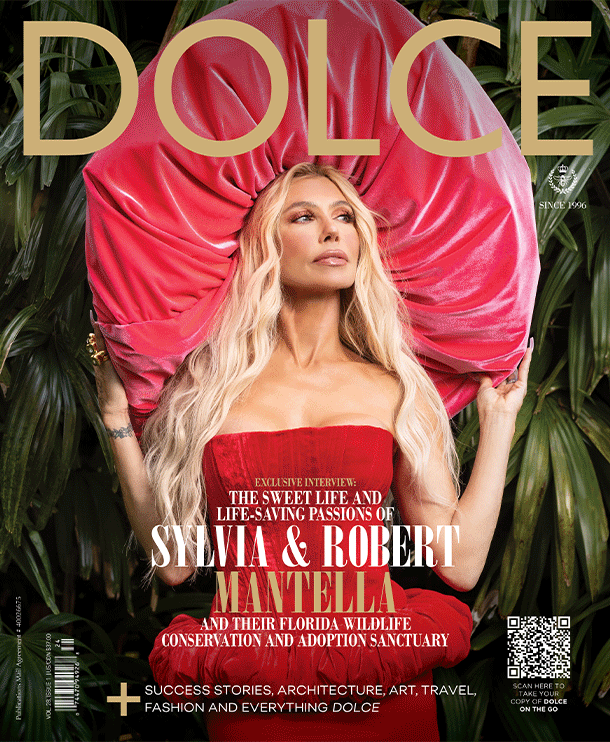



































































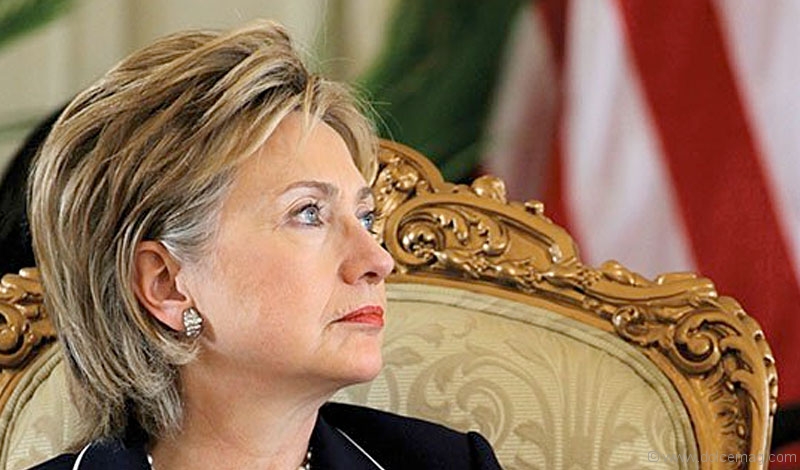






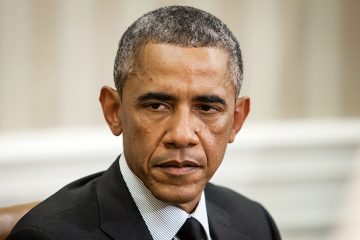
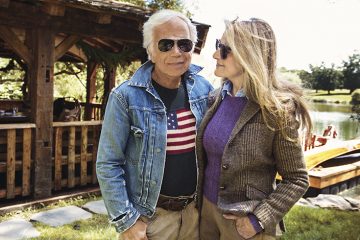
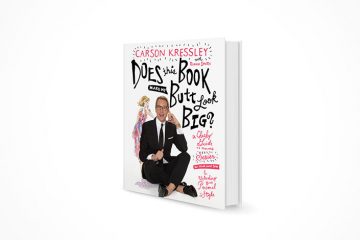


No Comment